Nosebleed FAQs
How Can I Prevent a Nosebleed?
Nosebleeds can be prevented by avoiding nose-picking or blowing the nose too hard. Keeping your nose clean and moist with nasal saline (saltwater) and gels can also help. Additionally, using a humidifier to keep the air moist will help keep your nose moist, which can prevent a nosebleed.
I Have an Active Nosebleed. What Can I Do?
A nosebleed can be stressful. Keeping calm and knowing how to stop a nosebleed ahead of time can help. Once a nosebleed starts, lean forward and pinch the soft part of the nose for at least five minutes. If the nosebleed slows, keep holding for a full 15 minutes.
Can I Use Any Over-the-counter Medications to Help If My Nose Is Bleeding?
Nasal saline (saltwater) gel or spray can help moisturize the inside of the nose. Oxymetazoline (pronounced ok-see-muh-taz-uh-leen) or phenylephrine (pronounced fen-l-ef-reen) are nasal sprays which can help slow nosebleeds. Blow the nose to clear any clots and then spray two sprays in the bleeding nostril and keep holding the soft part of the nose for five minutes. You may repeat this once.
My Nosebleed Won't Stop. What Should I Do?
If your nosebleed does not stop even after you tried the above methods, you should call a medical professional. If the bleeding is heavy, long-lasting, or you feel weak or lightheaded then seek immediate care at an emergency room department or call 911.
I Saw My ENT and My Nose Was Cauterized. Do I Have Any Restrictions?
You have to treat your nose with care to allow the area to heal. Avoid nose blowing, tiring activity, heavy lifting, or placing any cotton or tissues in the nose for at least a week. You may use saline (saltwater) gel or spray to help wet the nose one to three times a day.
I Am on Blood Thinner Medication and My Nose Often Bleeds. Should I Stop Taking This Medication?
You should quickly check with the healthcare provider who prescribed the blood thinning medication, since these medications are usually given to treat or prevent serious medical problems. If your nosebleed is heavy, do not take additional doses of blood thinner until you are checked up by a healthcare provider and you should not delay the checkup.
Source
Tunkel DE, Anne S, Payne SC, et al. Clinical practice guideline: nosebleed (epistaxis). Otolaryngol Head Neck Surg. 2020;162(1_Suppl):S1-S38.
Related Conditions
The information on ENThealth.org is provided solely for educational purposes and does not represent medical advice, nor is it a substitute for seeking professional medical care.
Copyright 2025. American Academy of Otolaryngology–Head and Neck Surgery Foundation

